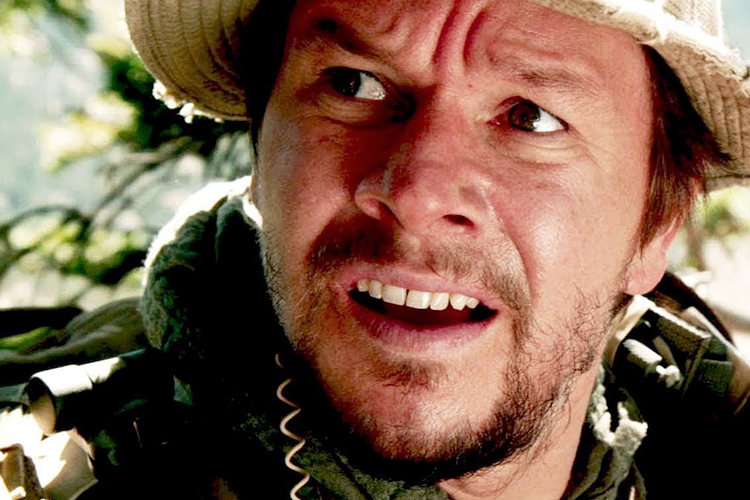“Lone Survivor,” which is an action film starring Mark Wahlberg based on a real-life Navy SEAL mission that went bad in Afghanistan in 2005, snuck out in a few big-city theaters before the end of the year and was barely noticed. Sometimes that means producers are hoping for awards consideration, but Universal Pictures and writer-director Peter Berg (of “Battleship” and the original “Friday Night Lights”) had a different end in view. But after a $38 million opening weekend in wide release, “Lone Survivor” has become something unexpected: The first big Hollywood hit of 2014, and the first war movie of the “war on terror” era to connect with a mainstream audience. (For various reasons, I don’t think we can count the contentious “Zero Dark Thirty,” which was a midsize hit at $95 million.)
Berg and Wahlberg have disavowed any specific ideological message about the Bush years or the Afghan war in making the movie, because they’re not total idiots and they understand that the entire Iraq-Afghanistan war effort, as it slowly winds down, is viewed by the public at large with considerable skepticism or worse. As Berg told the Los Angeles Times, the story of how a SEAL named Marcus Luttrell (played by Wahlberg in the film) survived a misbegotten mission in which 19 other soldiers died offers audiences a chance “to express their patriotism in a way that doesn’t feel political.” Of course, to pretend that a movie has no politics is in itself an ideological position, and never more so than in this jingoistic, pornographic work of war propaganda.
“Lone Survivor” has “no politics” in the sense that it offers the viewer no context for the training of this elite corps of soldiers who go off to kill and die for unmentioned and inexplicable causes in a place most Americans couldn’t find on a map with a dozen guesses. OK, we do learn their specific mission, which is to hunt down and terminate a local Taliban commander, presented as a terrible guy who has a villager decapitated for suspected collaboration with the Americans. It has no politics in that it never tries to explain the command mix-ups and communications mishaps that led to Luttrell’s unit being trapped in hostile territory and hemmed in by a more numerous force of Taliban fighters. (They are presented in the film as outnumbering the Americans many times over, which may not be accurate.)
“Lone Survivor” has no politics in the sense that it presents a more or less factual story about Luttrell and his comrades trying to fight their way out against overwhelming odds, and tells the truth that most of them didn’t make it. But the visual symbolism and the iconography of this movie are not apolitical or ideologically neutral at all. Berg is a competent craftsman who shoots tense, exciting, tightly edited battle scenes that only occasionally lapse into incoherence. (The cinematographer is his longtime collaborator Tobias Schlieesler.) But time and time again, we see Afghan fighters in “tribal gear” brought down with a single shot, Whack-a-Mole style. Boom! They’re gone. American soldiers, it appears, can be shot three times, five times, a dozen times without dying.
No, that’s not true – eventually they do die, we all know it’s coming. And every time that happens, it’s an operatic, slo-mo Christ-like agony, with sweat and bone and blood and bits of flying gristle, Chevrolet-commercial flashbacks to some comely wife waiting somewhere and close-ups of Sears photo studio snapshots of the moppets whose dad is coming home in a body bag. Is it dramatically effective? Yeah, absolutely. But it also conveys the unmistakable impression that American suffering and death is qualitatively different and more profound than the death of some dudes from an Afghan village about whom we know nothing. With those guys, there is no possibility of grieving wives or children, or a complex back story with many motivating factors. They just keep coming like ants for the Coca-Cola ham at the Fourth of July picnic, and keep getting squashed just as easily.
Now, war movies have often or always done this, you may protest – always demonized and belittled the so-called enemy. Yeah, the bad ones have. You wouldn’t say that about “All Quiet on the Western Front” or “Paths of Glory” or “Full Metal Jacket.” One of my major problems with Quentin Tarantino’s recent movies, in fact, is that he deals out death indiscriminately to the bad guys, often for comic or shock effect, in classic B-movie style. But “Lone Survivor” isn’t even aware of itself as a B-movie; it’s trying to reclaim the discredited realm of the Iraq-Afghanistan conflicts as a zone for macho tragic fantasy, for the dream of American greatness. It’s trying to tell us that whatever we may think we think about what our country did over the past dozen years – this SEAL team was based at Bagram Air Force base, where some of the worst acts of CIA or military torture were committed – dying for the red, white and blue is still a holy enterprise. That people want to see a competent action picture in the depths of winter isn’t all that depressing, but the fact that they’re swallowing the disgusting symbolism of this one definitely is.

